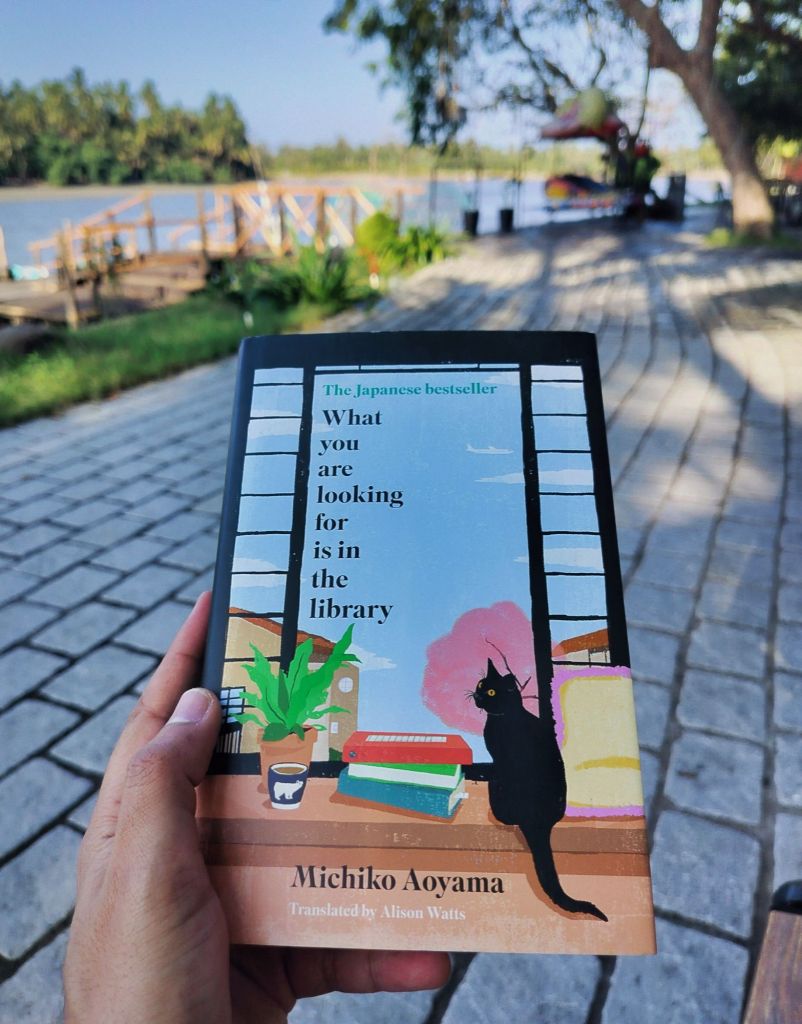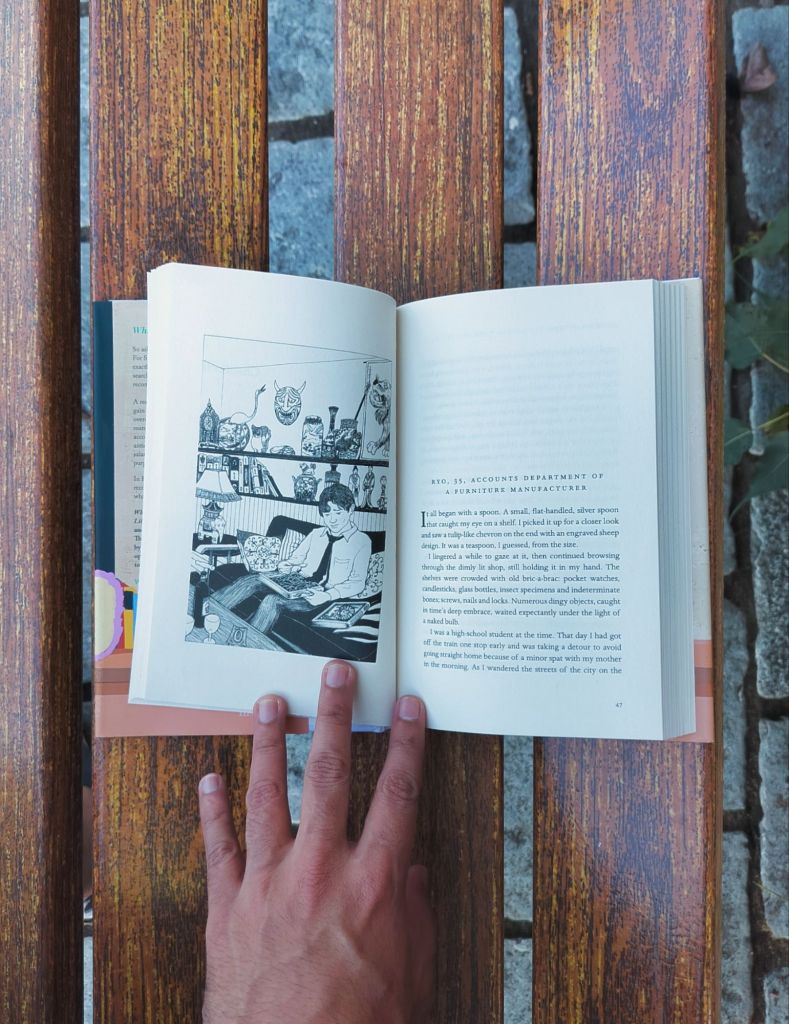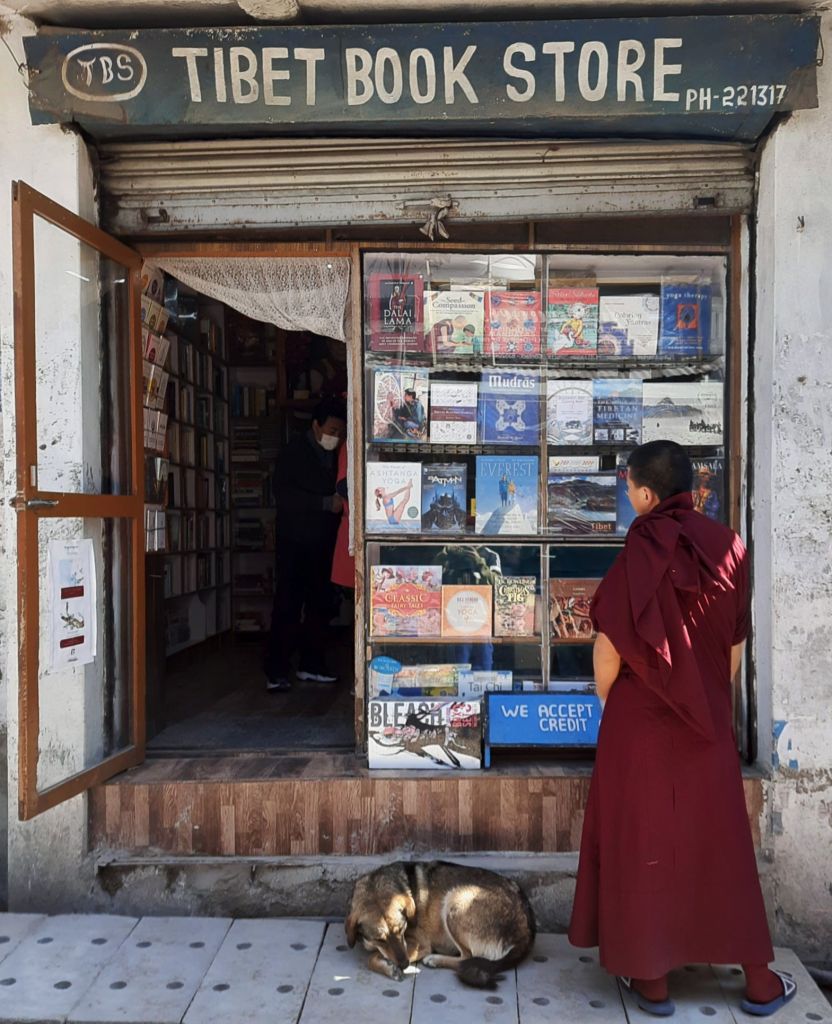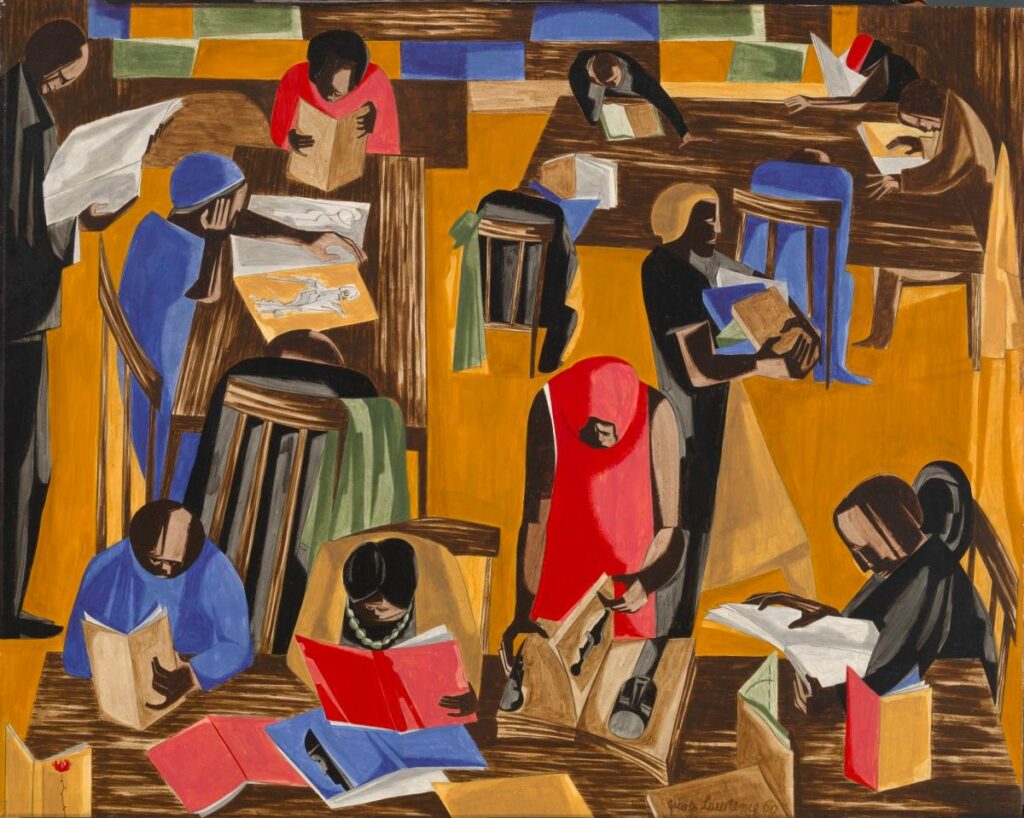In the “good old days” (though I sometimes wonder whether they were THAT GOOD), picking up a book from another country felt like stepping through a sci-fi portal. Everything was new, unfamiliar – the customs, the landscapes, the words and expressions, it all felt different. But within that foreignness, as we turned the pages, we discovered something universal: the threads of human emotion that connect us all.
Now, fast forward to today. That initial sense of unfamiliarity? Well, that’s largely gone. Globalisation has shrunk the world, and even before we open the cover, we often recognise the settings and characters in a book. We understand the lingo. In some ways, it’s good—it saves the effort; in other ways, you miss the mystery of it. These were precisely my thoughts as I began What You’re Looking For Is in the Library by Michiko Aoyama, translated by Alison Watts.

The book, as the title suggests, revolves around a library. It’s structured as five interconnected short stories, each a little gem on its own. The characters, all residents of a Tokyo neighbourhood near the library, find themselves crossing paths with the enigmatic librarian, Ms Komachi. She plays a subtle but important role in each of their lives. And here’s what I loved the most (pardon my bias for books inside a book): within each story, a particular book is mentioned, and somehow, in the act of reading, something shifts for the protagonist.
There’s an obvious question here. Do libraries contain all the answers? Can a book truly alter the course of a life? Let’s ponder that a bit later. For now, let me introduce you to these books within the book, and through them, to the stories that quietly unfold in each chapter.
Guri and Gura
How can a random children’s book change one’s life, you might wonder? Well, it simplified many things for our first protagonist, Tomoka, who is a sales assistant and is confused about what to do next in life. In this story, the book helps Tomoka reconnect with a sense of wonder and rediscover the pleasure in small, everyday things. “No need to rush,” she reminds herself in the end. It’s not that all her troubles are over, she is still seeking answers, but she feels much more at ease now. And that’s the whole point of art, isn’t it?
How Do Worms Work
Ryo, who works in the accounts department, wants to open a shop. But he doesn’t have the courage or clarity regarding how to go about it. Then, as you would expect, he chances upon this vintage book. How does that help? It seems an unlikely source of inspiration, but that’s precisely the point.

In one of its chapters, the book encourages Ryo to look beneath the surface, to find potential and value in unexpected places. Just the way trees focus on their roots as well, and not just what’s above the ground. That’s how Ryo finds inspiration to open the shop without having to leave his day job.
Door to the Moon
To be honest with you, this book sounded like a bit of woo-woo to me, but I guess this was the kind of perspective Natsumi, the protagonist of the third chapter, needed at a crucial point in her life. She sought a meaningful job at a publishing house while looking after her baby. That’s when she discovered this mysterious door (I mean the book, not the door, literally). The book evoked a sense of possibility, of reaching something beyond the everyday. It served as a catalyst for Natsumi to break down self-imposed barriers and realise that even the most ambitious dreams are worth pursuing.
Evolution: A Visual Record
Hiroya is clueless about his life at 30. It gets even more embarrassing when he goes to the school reunion where everyone is bragging about their achievements. And once again, a book comes to his rescue. This is a book about the theory of evolution and how two different scientists, Darwin and Wallace (from different backgrounds and with different resources at their disposal), came to the same conclusion, and yet, only one of them got the credit for his work. That seemed a bit unfair. But what can you do about it? Act like a victim? Or do whatever little you can with whatever little you have? I think we all know the answer, and so did Hiroya.
Genge and Frogs
Life doesn’t become easy after retirement. If anything, it gets more complicated. This is what we find in the final chapter, where Masao, a 65-year-old man, is trying to adapt to this new life. Which book does he find, rather, which book finds him? It’s called Genge and Frogs, a collection of poetry. The book really helps him. It becomes a tool for connection, for bridging divides between generations. It encourages Masao to see the world from a different perspective and to find beauty in the imperfections of life.

So, those are the stories that you’d find in What You’re Looking For Is in the Library. Now, let’s turn the page and consider a few lingering thoughts I had while reading.
First, that question I posed earlier: Can books truly change one’s life? Well, the answer, perhaps surprisingly, seems to be a resounding “maybe not directly.” One of the stories reveals that Ms Komachi often recommends books without giving too much thought. The characters themselves imbue the books with deeper meaning. And isn’t that what we all do? We assign significance to the random events of this vast cosmos, even when, as the nihilists suggest, it might all be wonderfully, terrifyingly meaningless.
Another observation: how often the characters’ challenges revolve around careers and jobs (except for the final story, where the protagonist seeks a hobby). I’m not faulting the author for this focus; rather, it shows the harsh reality of our modern lives. So much of our time, our energy, is consumed by our work. It feels a bit sad, I must admit. After all, the comforts of modernity have come at the cost of our time and freedom.
So, should you happen to pick up this book, I suspect you’ll find yourself enjoying the opportunity to step into someone else’s shoes (or perhaps, if a character resonates deeply, to better understand your own). It’s a chance to explore the subtle, often overlooked emotions that shape our lives – a therapeutic journey, if you will. And even if you choose a different book (maybe mine, who knows!), I encourage you to be mindful of its impact on you as you read. Either way, happy reading, and may you find just what you’re looking for, whether it’s in a library or within yourself.

